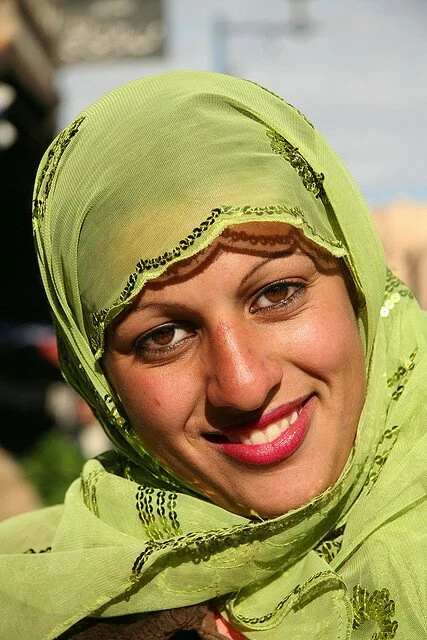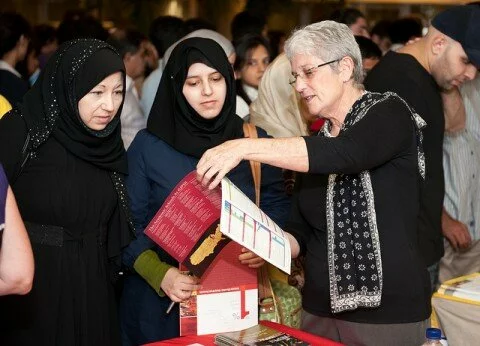
 The concept of beauty in Islam began by the beauty of Allah Almighty and His Holy Book Quran then
The concept of beauty in Islam began by the beauty of Allah Almighty and His Holy Book Quran then
comes the beauty of universe that Allah created for Man, who is the also the creation of Allah. Islam
considers not only the physical beauty; it also considers inner beauty of heart and soul as the real
beauty. Islamic teachings also emphasize on the appearance and beauty but Muslim should not over do
and remain balanced.
Balanced living standard according to the norms of Islam also helps to guard the society from unrealistic
expectations of appearance; body size and figure shape and also secure the females from the unethical
practices of society that are being introduced by the western culture. Beauty for Muslim women is
to follow Ahkam-e-Ilahi (rules), they are encouraged to make their appearance appealing for their
husbands by dressing and presenting herself in clean and tidy manner for her husband only.
Islam clearly depicts the image that Muslim women should adopt and to whom she reveals her utter
beauty. The prescribed image that women should follow is to cover all body parts except the face and
hands as modesty (Haya) is the beauty of Muslim women. Hijjab and Abaya are used by the women to
cover her and many trendy and fashionable Abayaz are available. They are very popular especially in
the Arabic countries so that the woman can carry herself nicely and look beautiful while remaining in
the circle of Islamic teachings. By following the teachings of Islam, one can have beautiful and attractive
inner and outer appearance. Women without exposing their body looks more stunning and with full
clothing they appear beautiful as compared to those who reveal them to seduce men.
Many Muslim women do not wear abaya or do Hijab as it is not followed in their families. They are
studying in westernized education systems where such formalities are labeled as fundamentalists. Abaya
or no abaya, the main purpose of wearing it is to hide the body from attracting the men who are not
mehrum or are strangers. Women who do not wear abaya can very wear adequate clothes that are not
too tightly fitted to reveal their body parts. They can either take a chaddar or cover them appropriately
with scarf or dupata. If you observe this deeply it will be very easy to understand that nothing in Islam
is present without a good reason and motive. You can see the women in the western countries who are
suffering great loss due to their exposure to men. The crime rates, rapes and harassment of women are
very high in the developed countries. Islam, the divine religion gave the Islamic code of clothing and
covering your body fourteen hundred years ago to both men and women to keep the society away from
such frustrating behaviors and criminal actions. Women are more respectable and precious so they are
told to treat them as they are. By covering your beautiful body and revealing only to that who is your
lawful husband is a beautiful sophisticated thinking and approach.
 According to Islamic teachings health fully encompasses complete physical, mental, social well-being
According to Islamic teachings health fully encompasses complete physical, mental, social well-being
or a person and society, which must be safeguarded. Not through the maintenance and protection
of a health preserving regime at the entity level but through the development of protective health
and encouraging family and social system. Islam introduces the concept of preventing health and no
substance and practices that seriously endanger the health can be allowed in Islamic system. There is
need to change the society according to the divine commandments for the betterment of general health
and help in solving health related medical issues which occur due to the social practices. This must be
tackled socially through underlining principles of Quran. Islam promotes comprehensive ways towards
prevention and hygiene.
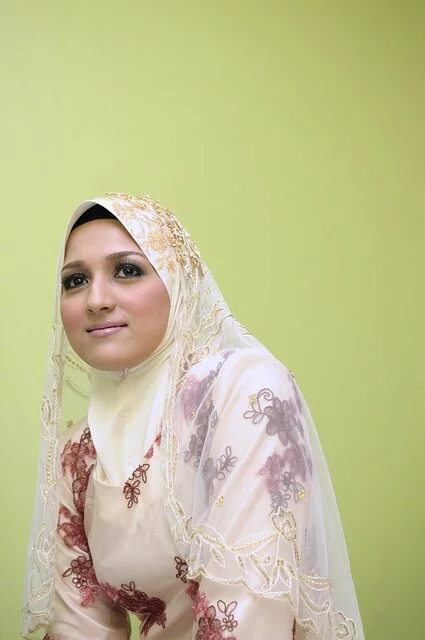 According to the principles lay down by Quran, total ban on alcoholic products, meat of dead animals,
According to the principles lay down by Quran, total ban on alcoholic products, meat of dead animals,
pork, blood, drugs, tobacco, etc. should be declared prohibited. Having proper bathing after impurities,
doing Wudhu 5 times on visible parts of body for prayers, cleaning under area after urinating or after
defecation, washing and cleaning hands after getting in touch with some unclean things and moreover,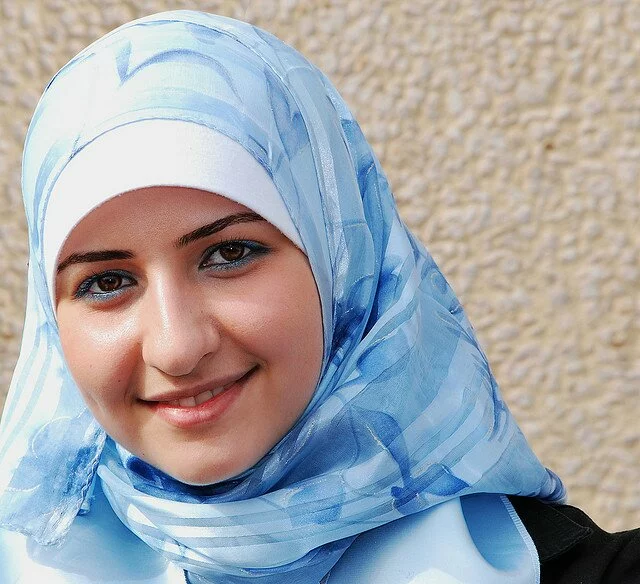
protection of inside mouth cavity by using miswak (brushing of teeth), etc. are the preventive measures
that Islam discussed for the physical health as well as for spiritual well being.
The fundamental duties of Islam such as Iman (Faith), Salaat (Prayers), Saum (Fasting), Zakat (Charity),
and Hajj (Pilgrimage) are the basic pillars of Islam for safeguarding the society to combat with practices
that are harmful for healthy mind and body. 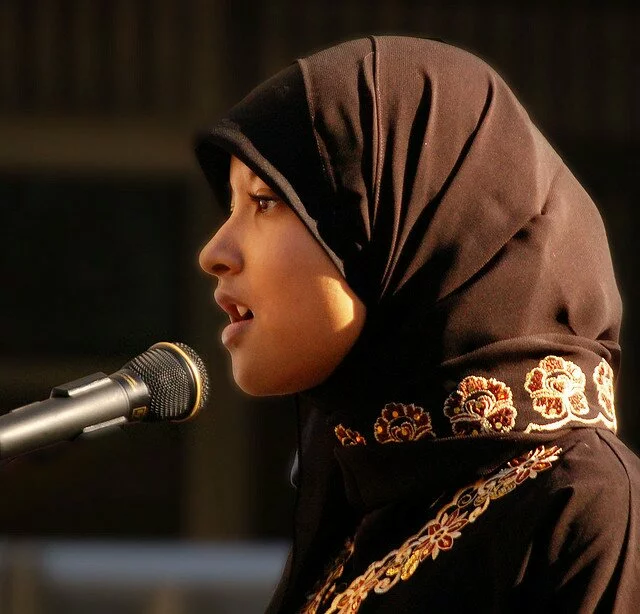 A person with strong Iman or faith in Allah abstains from
A person with strong Iman or faith in Allah abstains from
the wrong doings and what that are prohibited in Quran. Salaat is a wonderful means to abstain from
bad habits and for the strengthening of faith. Saum or fasting purifies and detoxifies the body systems
and aids in the improvement of mental health and well being of a person. It also brings people closer
and they can rejuvenate and cherish the celebrations of Eid festival. Zakat or charity is a must in Islam
and it helps in the circulation of money in the society. It is an excellent means to alleviate poverty in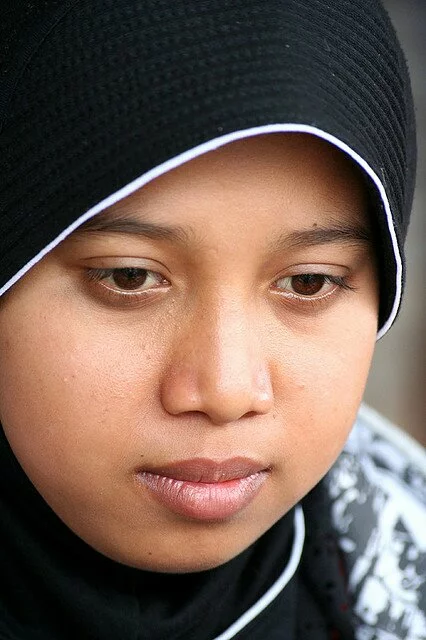
the country. Hajj or pilgrimage is mandatory on those to perform who can afford and it teaches the
person to be more responsive towards his or her duties. It helps in cleaning the person inside out and is
a combination of all the obligatory duties in Islam.
With the help of above passage you can clearly understand that Islam focuses not only the exterior but
inner beautification of a person to become more productive and responsible. 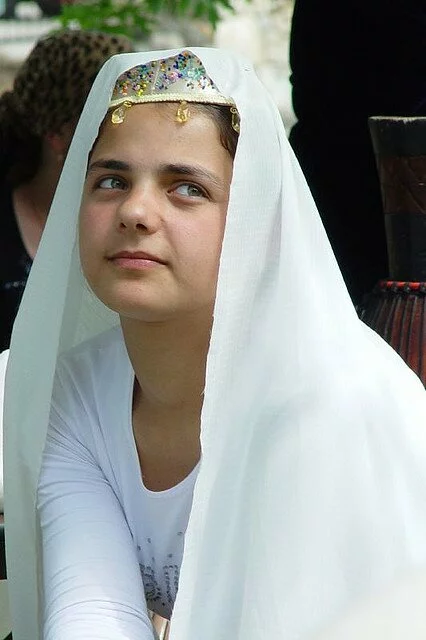 Islam is the code of life
Islam is the code of life
and whomsoever, understand this code leads towards peace and harmony in life.
 In Islam a whole month is specified for fasting every year and in other months it
In Islam a whole month is specified for fasting every year and in other months it
is not obligatory but optional. Fasting is only for the day with average duration
of 11-15 hrs and during this no food/drink can be consumed. Believers of Islam
take wholesome meal just before the start of the fasting just before the dawn and
after the expiry time of fasting when sun sets in the west. Many benefits of fasting
are there that includes the process of detoxification. It is normal body process for
eliminating toxins through liver, kidney, lungs, skin and lymph glands.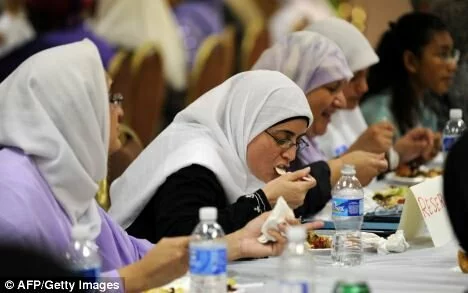
When a person gets ill he develops a natural loss of appetite. Hunger is the natural
healer. The body needs sometime to heal it automatically and you can very well
understand the need of fasting and its benefits to human body. Another health
and beauty benefit of fasting is it promotes anti aging hormones release and
strengthens immune system. Researchers have advised that fasting is the reliable
method of increasing age with under-nutrition and not malnutrition. Because of
diminution of energy consumption in gastrointestinal system, it partially diverted
to immune system and effectively strengthens it. This is how a body gets protected
from viral infections and can have more resistance power.
Islam offers health plus aesthetic benefits from its obligatory duties and this is how
making the life easier with full contentment and gratification. The approach of Islam
and its obligatory duties is very much holistic and it focuses on the well being of
healthy body as well as soul. The inner beauty is more focused and those who are
looking for improving their entire system, physical, psychological, spiritual opt for
fasting even in other months than the holy month of Ramadhan.
Beauty is skin deep as you must have heard thousands of times and this is
exactly the emphasis is upon. Muslim women and also men can not only improve
their metabolism and facial beauty but also learn to fight with negative thinking,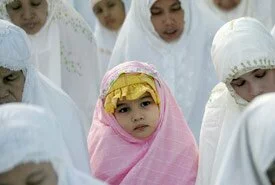
depression and abstain from bad habits. The fasting month or Ramadhan is the best
time of the year to quit smoking and alcohol. During this holy month you learn to
control your worldly desires and repent.
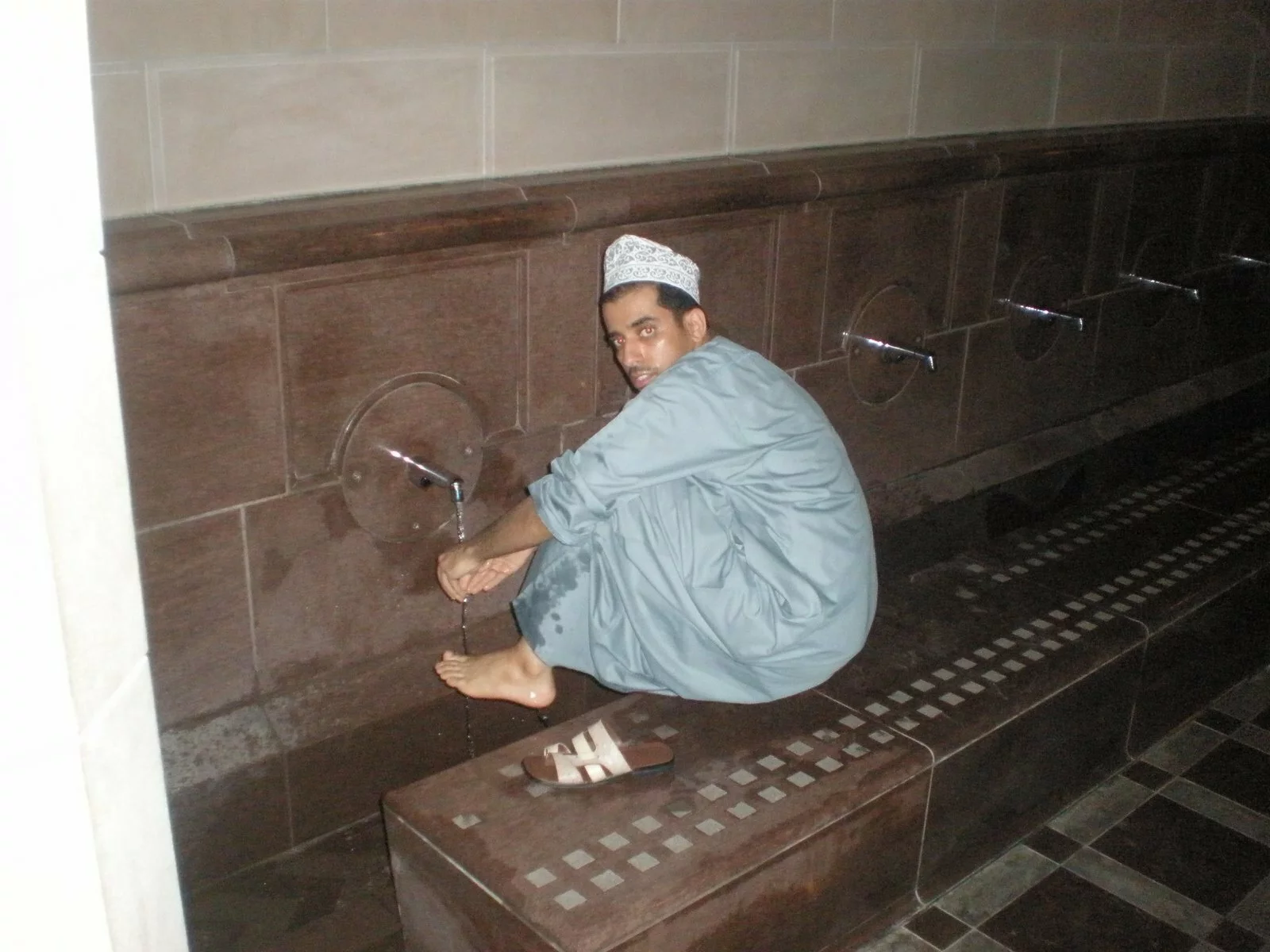 Islamic prayer Salat is proceeded by Wuduh or ablution that contributes
Islamic prayer Salat is proceeded by Wuduh or ablution that contributes
greatly towards the health of the individual and as results beauty also
enhances as it cleans one’s heart, soul and body. New researches also prove
that washing face 5 times a day for Salat deeply cleanses skin and keeps the
skin radiant. Islamic point of view considers radiant and healthy skin as the
noor (illuminating light) of Allah on the face of believer as our Holy Prophet
(PBUH) is one of the examples.
Oral Hygiene is another significant consequence of the Wuduh. The mouth
is rinsed and the teeth are brushed with miswak (a plant) and surely cause
a considerable decrease in all the infections in the mouth, teeth and gums.
Having clean and shiny teeth adds on the beauty of smiling face and helpful
in producing a million dollar smile.
Wuduh has also a very undeviating connection with the Istanja practice a
process of washing genitals after urinating. Istanja routine prevents urinary
tract Infections (UTI’s) and ensures the healthiness and fitness of body. As
if any drop of urine remains on the body, an impurity must be removed to
remain healthy.
Islam is the only religion that directly contributes to the personal health
and beauty, by providing Islamic system and teachings for men and women
to live their lives peacefully. In Quran Allah swt, says that Allah is Jameel
(Beautiful beyond imagination) and He loves the beauty. Islam being the
deen (religion) of Allah and Islamic teaching based upon Quranic words
and Hadees (actions and sayings of the last prophet in Islam) imparts and
focuses on the significance of appearing beautiful inside out. By performing
these rituals and practices the person especially women can enhance their
beauty, ambience and elegance.
When a person performs wuduh or ablution, he performs 26 precise
movements 5 times a day and this prescription is for optimum health and
vigor. Allah says in Quran:
“O ye who believe! When ye prepare for prayer, wash your faces, and your
hands (and arms) to the elbows; Rub your heads (with water); and (wash)
your feet to the ankles. If ye are in a state of ceremonial impurity, bathe
your whole body. But if ye are ill, or on a journey, or one of you cometh
from offices of nature, or ye have been in contact with women, and ye find
no water, then take for yourselves clean sand or earth, and rub therewith
your faces and hands, Allah doth not wish to place you in a difficulty, but to
make you clean, and to complete his favor to you, that ye may be grateful.”
(Chapter 5, Verse 6)
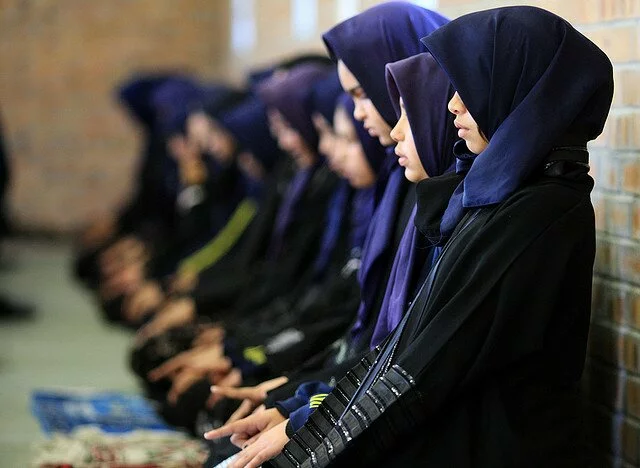 Salaat is the main pillar of Islam. Muslims offer prayers five times a day.
Salaat is the main pillar of Islam. Muslims offer prayers five times a day.
Scientific studies and researches have proved that salaat is incredibly
excellent exercise that helps in countless ways to keep the mind and body
healthier and the toned figure of person adds to beauty.
Each unit (Rakat) of salaat utilizes every single muscles of the body and
makes active all motor system of an individual.
When a person lifts his hands for Takbeer in the beginning of prayer, the
abduction of shoulders controlled by cervical part of spinal cord activates.
When the person goes in Ruku (bending), the movement of arms trunk and
hips involves cervical and lumbar muscles.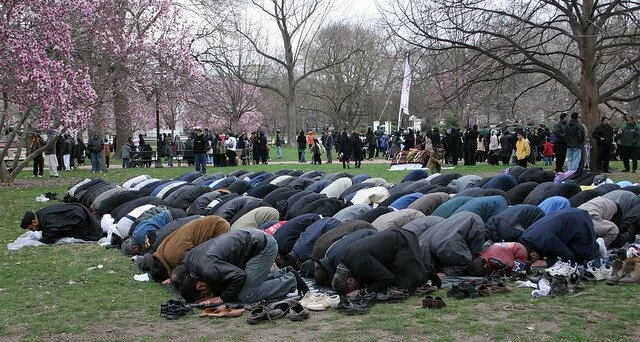
Similarly, in Sajdah or bowing down, the movement involves many muscles
especially the nerve controls.
These different postures of prayers have been designed in a manner that
most of the motor systems of the brain gets stimulated and overpowering
muscles of the body are brought into an action. Salat includes a definite
number of units (rakahs) are repeated numerous times. Therefore, repeating
postures from standing in Takbeer to bending in Ruku to prostrating until
sitting for a number of times ensures several exercises.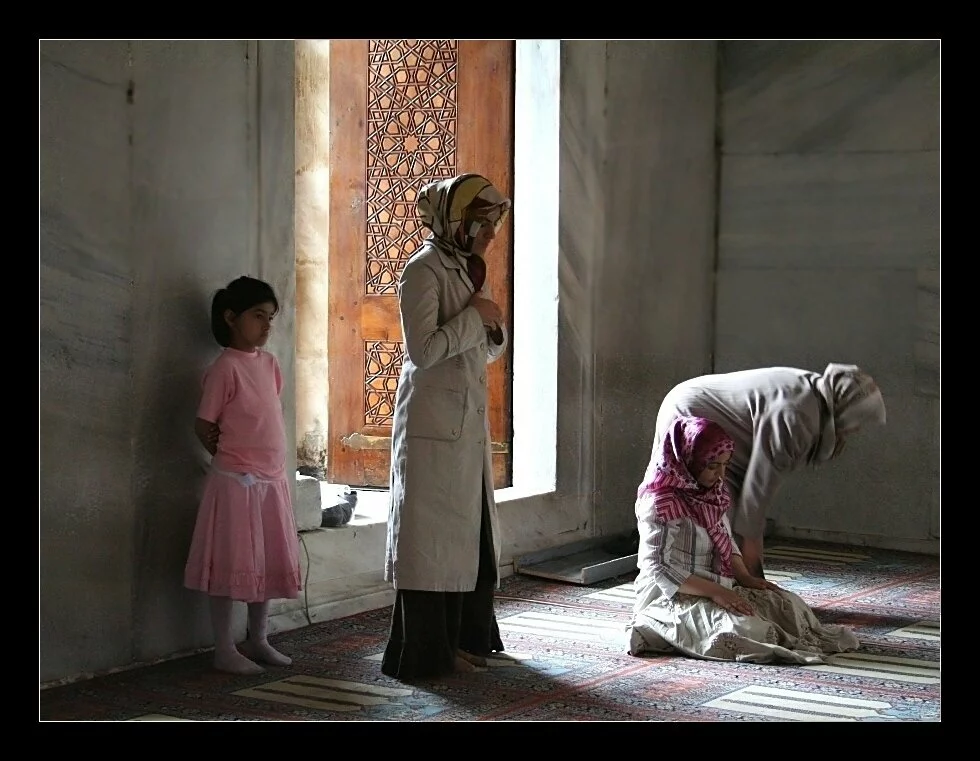
This exercise is very good for eyes, convergence and divergence of eyes
will strengthen the power to great extent. It also increases the circulation of
blood and likewise many other benefits are associated with every Rakahs to
keep body healthy. When one gets healthier automatically, beauty reflects
itself.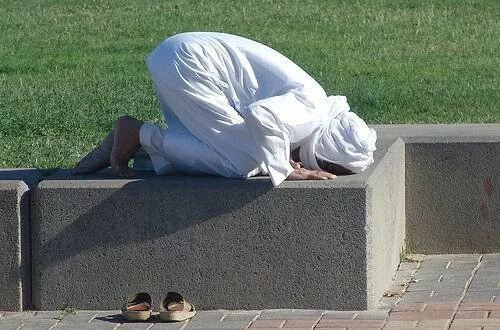
Every part (rukn) of Islam has many seen and unseen benefits and the
followers can have numerous advantages. From Wuduh or ablution until
the end the person performing salat benefits physically but also mentally
and spiritually. For the Muslim women it is the perfect workout to reduce
cholesterol, avoid coronary diseases, diabetes, and other ailments. It
promotes healthy digestion, increases the flow of blood, relaxes entire body
and provides a relief from tension.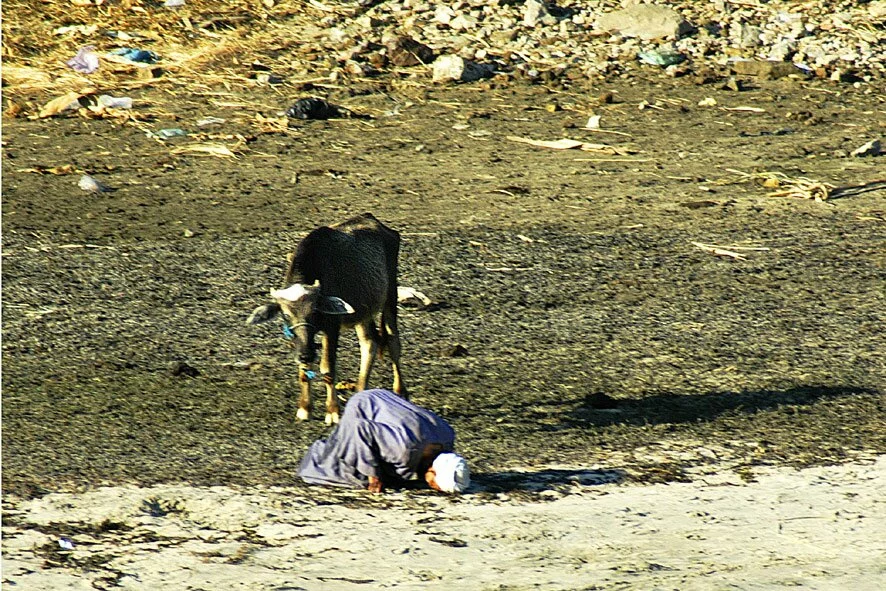

- 3d islamic wallpaper
- Afghanistan muslim girls
- Algeria Muslim
- Allah Miracle wallpapers
- Allah Wallpapers
- arab muslim girls
- Birds Wallpapers
- Chinese Muslim Photo
- desktop wallpaper
- Dua
- Economic News
- Egypt Muslim
- EID 2010 Photos
- Eid Ul Adha Wallpapers
- Eid Wallpapers
- Flood in Pakistan
- Golden Ahadith
- Hadrat Ali
- Health, Beauty and Islam
- Hijab Matters
- Hindi News
- history of islam
- Home News
- Home Page
- Human Heart
- India muslim girl
- Indian News
- Indonesia Muslim Girl
- Iran Muslim
- Iraq Muslim
- islam religion
- islam symbol
- islamic art
- islamic books
- islamic calendar
- islamic calligraphy
- Islamic Cloths
- Islamic History Wallpaper
- Islamic Photos
- islamic places
- Islamic Sayeri
- islamic songs
- islamic video
- Islamic wallpaper
- Islamic Wallpapers
- Israel Muslim
- Japan Muslim Photo
- Jordan Muslim
- Kabah photo
- kalima shahada mentioned in quran
- Karbala Photos
- kerala muslim girls
- Kissing Photos
- Latest News
- Latest Posts
- Love shayari
- Madina wallpaper
- Malaysia Muslim
- Marriage And family
- marriage in islam
- MEHNDI DESIGNS
- Modern Muslim Women & Challenges
- Mohammad
- Mosque
- Mosque Wallpapers
- Muharram History
- Muharram Photo
- Muslim baby wallpaper
- Muslim Boys singapore
- Muslim Fashion Girl
- Muslim Girls
- muslim girls hijab
- muslim girls in bangalore
- muslim girls in china
- muslim girls in hyderabad
- muslim girls in pune
- muslim girls in uk
- Muslim Marriage photos
- Muslim Photo From Around the world
- Muslim Women World
- Na-at Sharif
- Namaz (Salat)
- Nigeria Muslim
- Pakistan News
- Pakistan Photos
- Pakistani Delegates visit to India
- pakistani girls
- Palastine muslim
- Palestinians Muslim
- Quran photos
- Quran Quotes
- Ramadan Wallpapers
- Random 40 Hadith
- Saudi Arabia Muslim
- Saudi Arebia Girls
- singapore
- Singapore Mosque
- Singapore Muslims
- single muslim girls
- South Korea Muslim
- Stories of sahaba
- Tajikistan Muslim
- tamil muslim girls
- THE RIGHT USE OF MEDIA
- Turkey Muslim
- UK Muslim
- United Arab Emirates
- Urdu News
- USA Muslim
- Women's Rights in Islam
- World
- اسلامی تاریخی تصاویر
- اسلامی ڈیزائن گھر
- خوبصورت جگہ کا تصوير
- خوبصورت مسجد کا تصوير
- Islam In India

- Beautiful girl in Hijab
- Why ARE so many modern British career women converting to Islam?
- Beaituful Indonasian Model
- Modern Indonasian Muslim Model
- Jobs, Women and Islam
- The Fight for Rights: Muslim Women
- Oppression faced by Muslim Women
- Muslim women as Wives
- Muslim Women and jobs in the modern World
- Muslim Women after 9/11
- A Woman in Dua to God.
- Happy muslim family
- At Wellington’s Herbs and Spices farm
- A-B Honor Roll WHA-WHA
- Malika and the posse
- Learning about the history of Wellington’s Herbs and Spices
- Kauthar, Jannah, Ummi and Malika at the Victorian Tea at Wellington’s Herbs and Spices farm
- Jannah, Rafiq and Alahudeen at Malika’s graduation
- The differences between Western feminism and Islamic feminism concerns the issue of veiling.
- Nice Woman photo
- Young Libyan Woman photo
- Veiled Yemeni women in computer class, Taiz Yemen.
- Surat Web Design
- Web Desgin Company
- kolkata Web Design Company
- Assalam-o-Alykum & Hi, My name is Muhammad Ata-ul- haq S
- these are very nice and beautiful wallpapers..i really liked
- nice job......................
- nice work keep it up........................
- Sa pagkakaalam ko ang muslim bAwal mangmura,
- assalamu aleikum warhmatullah*mujhe ek assi muslima chahiye
- Nice, breathtaking photo. It is one of the most peaceful phy
- hello, i really love ur photo (islamic architecture in putra
- MashaAllah! every true believer has a lovely glow on their f
- plese let me know who is that girl on that picture..she is r






